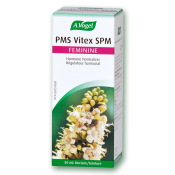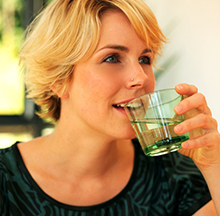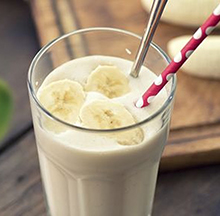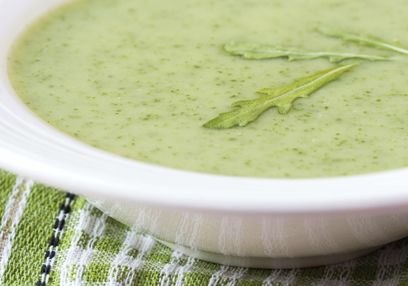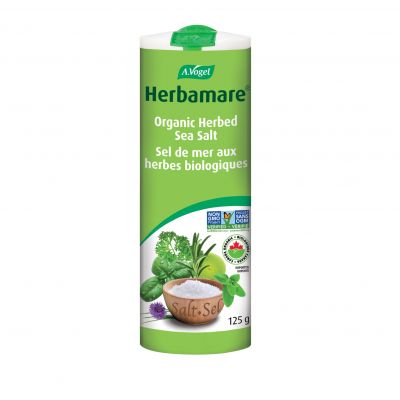What is PMS?
Premenstrual syndrome is a combination of symptoms that 90% of women tend to experience about a week or two before their menstrual cycle. The most common symptoms are headaches, bloating and moodiness. On average, women around their 30's experience these types of symptoms.
Symptoms tend to change and worsen when you're going through perimenopause (the period leading up to the actual halting of the menstrual cycle). During this time, you can expect your cycles to become irregular and eventually stop.
But many women experience a roller coaster ride of hormonal symptoms in the years leading up to menopause itself. Some new symptoms could be one or many;
- irritability,
- bloating and food cravings,
- breast tenderness,
- weight gain,
- and increased water retention.
PMS during perimenopause
Some women seem more inclined to experience heavier PMS symptoms during perimenopause, or at least they tolerate the symptoms less well. Perimenopause symptoms stem from falling oestrogen levels with irregular ovulation and can cause low estrogen levels and heavy/irregular periods. That's when hormones start to fluctuate. Not every cycle is ovulatory, this means that hormone fluctuations can vary widely.
As estrogen levels drop, there is a predominance of progesterone that is mostly responsible for the moodiness associated with PMS. Lower estrogen could be the cause of symptoms such as
- hot flashes,
- irregular bleeding,
- problems with sleep...all of which can aggravate the symptoms of PMS and make your mood worse.
During perimenopause, you could skip a period altogether and then have an exceptionally heavy cycle. You could miss periods for three months straight and then have your cycle run like clockwork once again. All of these experiences could make PMS seem significantly worse than normal.
Things that can help relieve PMS during perimenopause
- Polyunsaturated fatty acids (omega-3 and omega-6). Research shows that taking a supplement with 1 to 2 grams of polyunsaturated fatty acids may help reduce cramps and other PMS symptoms. Some good sources of polyunsaturated fatty acids include flaxseed, nuts, fish, and green leafy vegetables. You can also supplement with A.Vogel's Vegan Omegas.
- Vitamin B6. To help with moodiness, forgetfulness, irritability, bloating and anxiety, B6 can be a vitamin to take as a supplement or consumed through certain foods. Such as; potatoes, fruit (except citrus), and fortified cereal.
- One of the food types to include on a diet for PMS is fiber-rich foods. Research has found that a diet low in fiber and other nutrients is often associated with symptoms of PMS, irregular and/or longer menstrual cycles. Extra fiber will also help you combat constipation and other digestive issues that can be related to PMS.
- Of course, keeping yourself hydrated is key to combat bloating and improve digestion. A trick is to drink a liter of water first thing in the morning.
- Cut back on sugary and salty foods that tend to lead to water retention and worsening of PMS symptoms. To satisfy salty cravings in a a better way, use Herbamare to add flavour and good salt to your recipes! It's loaded with vegetables and herbs as well as sea salt. My favorite PMS snack is coconut oil popcorn with Spicy Herbamare on top.
- Vitex. One of the best supplements to take to relieve symptoms is chasteberry (Vitex Agnus Castus) because it helps to balance hormones and mimics the effects of dopamine in the brain.
- Eating calcium rich foods and/or taking 1500 mg/day of calcium - which has recently been shown to help with PMS which also helps sleep, restless legs and other nerve irritability signs.
Chia seeds, almonds, dried figs, sunflower seeds, white beans, edamame, sesame seeds, kale and arugula are all good sources of calcium. To ensure the absorption of calcium, there is the A Vogel Calcium Absorber. It's a formulation of mineral salts and stinging nettle herb isdesigned to naturally improve calcium metabolism in the body.
In changing certain habits and adding natural herbal remedies, hormone related symptoms may be alleviated as your body is returned to a more comfortable hormonal state.
PMS during perimenopause can be avoided or at least the symptoms can be greatly reduced. If you feel like you need help with your symptoms, make sure to reach out to a practitioner that specializes in hormonal health. They can help manage symptoms so you can feel like yourself again.
Hopefully these tips are helpful!
References:
https://www.womenshealth.gov/menstrual-cycle/premenstrual-syndrome.
https://pubmed.ncbi.nlm.nih.gov/25020055/
https://www.ncbi.nlm.nih.gov/books/NBK279045/
https://pubmed.ncbi.nlm.nih.gov/12672170/
https://www.progressivehealth.com/is-calcium-an-effective-alternative-treatment-for-pms.


